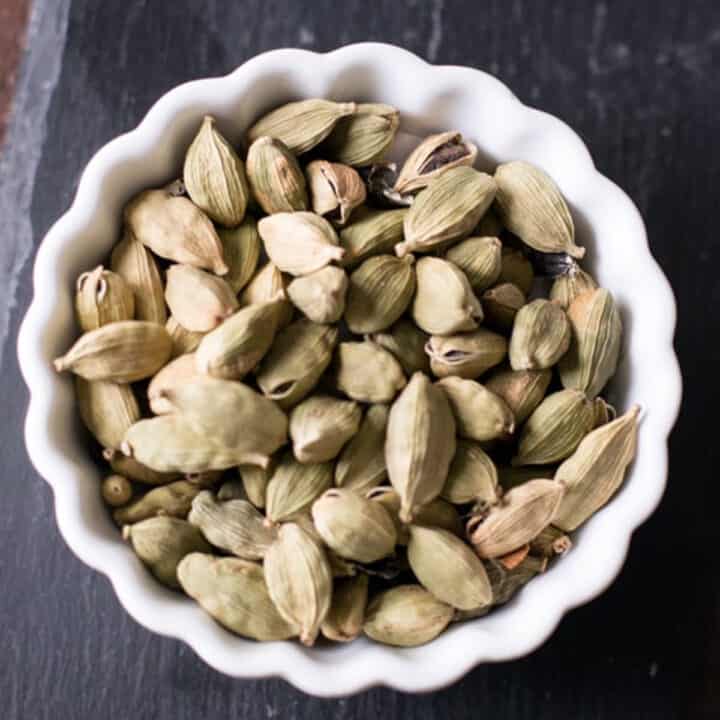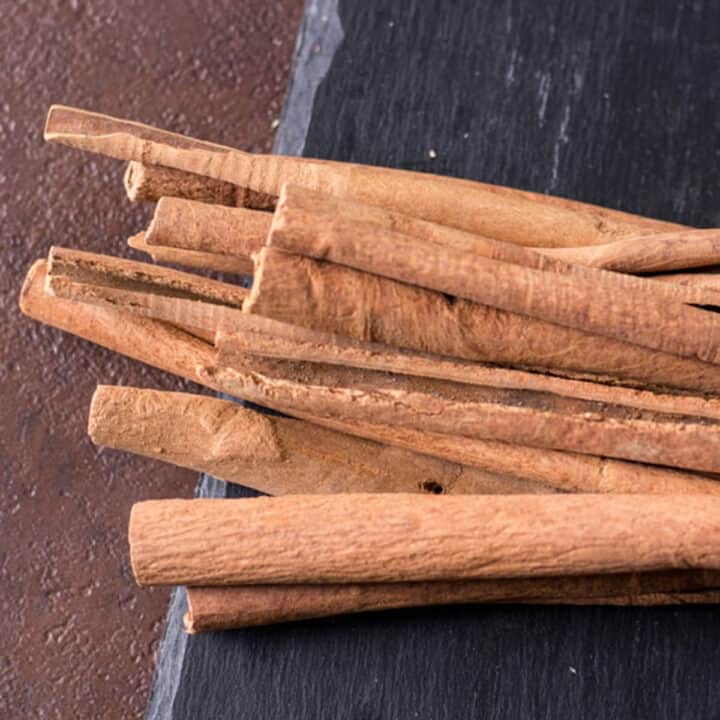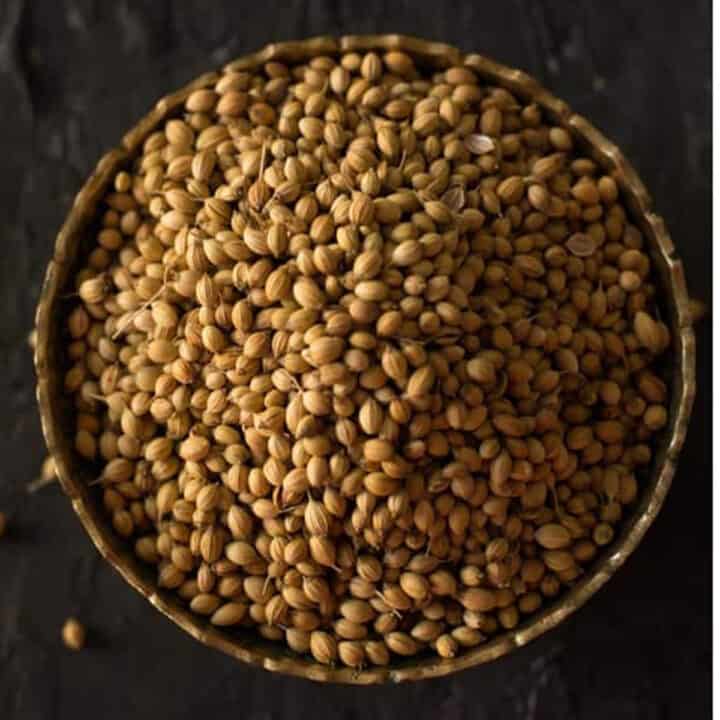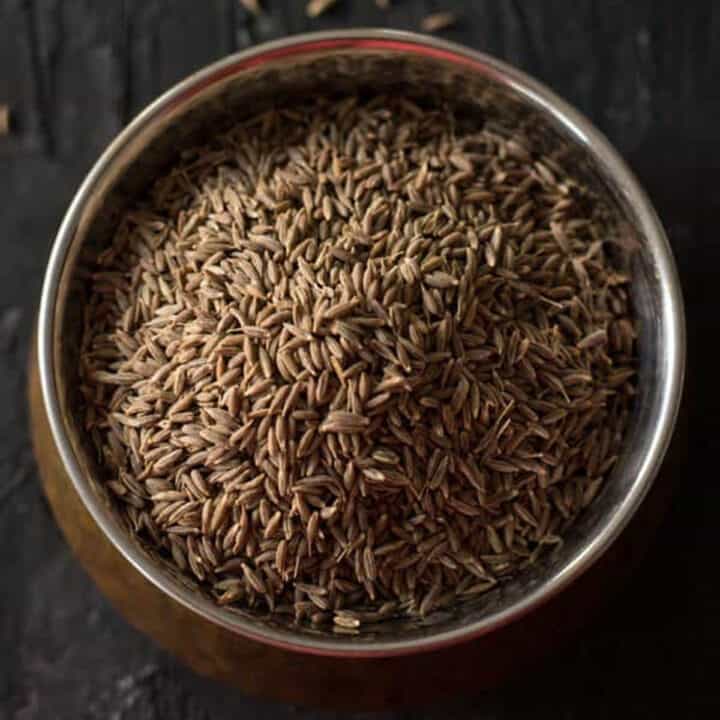Reheating the shrimp needs some basic understanding of the shrimp's meat. And this post elaborately discusses how to reheat shrimp without making them rubbery.
We love shrimp in any form, whether fried, baked, or sauteed. Shrimp tastes delicious no matter what spices are added to it.
The shrimp is versatile and stays excellent when breaded, steamed, or cooked with spices.
We live in central Pennsylvania and depend on frozen shrimp. Our household is happy and satisfied when I serve them with chicken or shrimp.
I have also shared a few of our shrimp recipes on our website. I have listed them below; you may also check them.
Shrimp recipes you may like,
- Shrimp Bruschetta
- Garlic pepper shrimp
- Hawaiian shrimp
- Shrimp pasta with cilantro lime sauce
- Sriracha shrimp pasta
- Shrimp the party appetizer
- Spicy seafood recipes
Do you find the shrimp turning rubbery after reheating? Do they lose their original texture and taste when recooked? I invite you to read this post and apply these tips when reheating the next time. I hope this will help you get better results next time.
I'm creating the post exclusively to discuss reheating shrimp because a few of our readers frequently ask this question. Instead of providing information personally, I thought I'd create an exclusive post to help others with the same doubts.
Dumping a significant quantity of shrimp in a single bowl and microwaving it will not help you for any reason.
Can you reheat the shrimp? Of course, yes, but my advice is not to do it more than once. You can freeze the leftovers and reheat them for one-time use. Multiple cooking will destroy the shrimp's properties and make it unsuitable for consumption.
Shrimp's meat is tender and gets cooked quickly for the first time. And this property alone makes it delicate to reheat. Proper heat should be applied evenly throughout the cooking process to overcome this.
Reheating shrimp is not a general topic; they are available in many sizes, and each one must be treated differently. Let's see them now.
The shrimp is very sensitive to heat. It gets cooked as soon as it turns opaque from translucent. Once the meat is cooked to 60%, switch to a lower flame to retain the moisture inside without burning the exterior.
Is the shrimp cooked already?
If you have frozen shrimp and cannot decide whether it is cooked or uncooked, then check them visually by seeing it. When the shrimp is,
- Straight. Shrimps are raw or not cooked enough.
- C-shaped. Perfectly cooked shrimp are C-shaped. While you are cooking, this is the sign you should wait for. The moment they start bending and turning to a C shape, it is the right time to stop cooking further.
- O shaped. This is a sign of overly cooked shrimp. And this is the time when it starts being rubbery. The more you cook, the more elastic it is. Steaming helps this type of cooked shrimp.
The shrimp cooks faster; cooking them in low to medium heat for about 3 minutes on each side would be ideal. However, the time varies according to the size of the shrimp. I feel the more giant shrimps are tricky to cook. We see below how to do it perfectly by adjusting the temperature during cooking.
How to reheat Shrimp
Step 1. Thawing the shrimp.
Thawing the shrimp is one of the critical factors for best-flavored shrimp. If it melted this way, no one could discover it as a reheated dish.
- Refrigerating. It is the best and most reliable method for thawing evenly without getting contaminated. When the shrimp are frozen, transfer them to the refrigerator the day before you serve them.
- Microwave. Refrigerating is reliable, but it needs a plan 24 hours prior. This is not always possible; microwaving is the fastest way for thawing. To thaw, arrange it on a microwave-safe plate without overlaying it. Spray water cover and microwave for 1 minute. Then, flip to the other side and follow the same procedure until they are thawed.
- Room temperature. Fill water in a big pot. Immerse the bag of shrimp for 2 hours. Make sure the bag is sealed and should not leak. If the bag is not sealed, the water can penetrate inside and make the shrimp soggy.
I would not advise leaving the bag on the kitchen counter as it is harmful and has a higher chance of contamination.
Step 2. Heating
In microwave.
This method is suitable for reheating shrimp scampi, alfredo shrimp, or steamed shrimp. Shrimp has a flat surface and has to be treated differently.
Pro Tip: When overcooked, the shrimp may start spluttering, so stop as soon as you hear the spluttering sound. Reheat it just a few minutes before serving the soft and moist shrimp.
Best for. This method is best for
- Arrange the shrimp on the plate.
- Spray water to moisturize the surface.
- Cover with the microwave-safe plate.
- Cook for 1 minute on each side and repeat until it is done.
Reheating is the easiest and most comfortable method. But things can go wrong when it is not done correctly.
In steamer.
This method is suitable for reheating steamed shrimp or for making seafood salad.
- For this, fill the outer pot with water.
- Place the steamer above the water level.
- Cook for 3-4 minutes or until it is done.
- Make sure you toss in between to make them evenly cooked.
In skillet.
This is a good and easy method for the breaded, deep-fried shrimp scampi or spiced shrimp.
- Apply a thin coating of cooking oil to the skillet.
- Heat it in low-medium temperature.
- Arrange the shrimp in a single layer.
- Cook for 2 minutes on each side or until it is done.
- Drizzle cooking oil if needed.
In oven.
This is the best way to reheat breaded shrimp, deep-fried or shrimp scampi.
Pro Tip. When reheating the breaded and fried shrimp, use just the tray. When reheating shrimp alfredo or spiced shrimp, cover it with aluminum foil to retain all the flavors and moisture.
- Preheat the oven to 350 degrees.
- Place the shrimp over it without staking.
- Coat the shrimp with a thin layer of cooking oil.
- Cover it with aluminum foil.
- Cook for 15 minutes. Do not forget to flip in between.
Frequently asked questions
The best way to reheat fried shrimp?
You all know the microwave cooks food but does not make it crispy. The result is a soggy, falling-apart crust that no longer sticks to the shrimp.
The trustworthy method is to use the Oven or the air fryer. Follow the abovementioned methods and get hot, crispy, perfectly done shrimp.
How to reheat shrimp alfredo?
Regular alfredo pasta can be reheated using any cooking method, but shrimp pasta is ideal for reheating in a skillet.
Add a little water, about a quarter cup for a single serving portion. Close the skillet with the lid and cook on a lower flame until the shrimp is tender.
How to reheat grilled shrimp?
Grilled shrimp works best in the oven and the skillet.
You can reheat them in the oven at 350 degrees for 15 minutes.
Alternatively, please place them in a greased pan and cook for 3 minutes on both sides on low-medium flame.
How to reheat shrimp fried rice?
This method applies to shrimp fried rice and all seafood rice dishes. Rice is more delicate than shrimp, so I would recommend microwaving. Place the rice in a microwave-safe bowl, sprinkle with water, and cook for 90 seconds. Then, stir gently and cook for another 90 seconds. Increase the cooking time if needed.
The sprinkled water keeps the rice and shrimp moist without being dry.
How to reheat steamed shrimp?
Steaming and microwaving are the best methods for reheating. When steaming, steam for about 2-3 minutes or until it is heated enough.
Reheating small vs. Jumbo shrimp
Reheating small shrimp is simple and works well in each method. When handling the jumbo shrimp, you may follow the exact instructions, but you need to flip them a couple more times.
A few more flips are needed for jumbo shrimps because the heat has to penetrate inside without making them hard and chewy.






Claudia Lamascolo
This is great information I cant tell you how many times the shrimp was so soft and no one would eat it leftover its was mussy. These tips are perfect thanks I appreciate it!
jess
This was such a great post full of advice! I always have trouble working with frozen shrimp, and can never get the temperature right! Thank you for the tips.
Tayler Ross
I've always found that reheated shrimp was rubbery, but here I've been doing it wrong! Your tips and tricks were so helpful!
Dana
Great tips here. Shrimp is so awesome but leftovers can be tricky!
Savita
Such an informative post, thankyou for sharing it.
Casey
My whole problem was always reheating shrimp in the microwave! Ooops! No wonder they never turned out! Thank you for the tips!!